Digital asset funds: Crypto subscriptions & AML compliance
The rise of the digital asset fund has transformed how managers raise and deploy capital. As investors seek exposure to crypto and blockchain-based strategies, more and more funds are accepting subscriptions in cryptocurrencies. According to coinmarketcap.com, the global market capitalisation for cryptocurrency is USD 4.02 trillion, as of September 2025, and an ever-growing cohort of investors hold the bulk of their wealth on-chain. By accepting subscriptions in cryptocurrency, digital asset funds are widening their reach to investors who have access to a large pool of capital in cryptocurrency and offering clear benefits.
This introduces a fresh layer of Anti-Money Laundering (AML), Countering the Financing of Terrorism (CFT), Countering Proliferation Financing (CPF) and Financial Sanctions (FS) compliance and governance challenges for compliance officers and boards.
Understanding subscriptions in cryptocurrency
A subscription in cryptocurrency is the on-chain transfer of digital assets, such as bitcoin or stablecoins, to the fund’s designated wallet in exchange for fund interests. Key advantages include:
- Near-instant, 24/7 global settlement
- Reduced intermediary costs and foreign exchange (FX) exposure
- Appeal to native Web3 investors who maintain substantial on-chain liquidity
Notwithstanding these benefits, the pseudonymous nature of blockchain transactions requires additional verification.
Regulatory requirements
Mitigation measures include:
- Accepting subscriptions only from:
- Wallets held at regulated exchanges or Virtual-Asset Service Providers (VASPs) subject to AML supervision and conducting CDD on its customers. It should be noted that not all regulated exchanges or VASPS have equivalent AML standards, and the jurisdiction and reputation should be assessed.
- Verified self-hosted wallets that have passed wallet identification tests and blockchain analytics risk screening.
- Using or engaging service providers to use, blockchain analytics tools to conduct risk screening on the wallet. This can help detect direct and indirect exposure to illicit activity and behaviour patterns.
- Verify the subscriber’s ownership and control of the wallet. This might be conducted through the using a micro transaction, or signature test using random message signatures. These might be conducted on live video calls or within a limited time frame providing screen shots.
- Ensuring the fund and/or appointed service provider has in place AML policies and procedures documenting these controls, including digital asset specific risk indicators and red flags.
- Provide regular AML training to directors, AML officers, and service providers which include addressing evolving digital asset typologies.
- Ensure that offering documents and subscription agreements disclose the fund’s ability to request additional information or reject/redesignate subscriptions and reserve the right to freeze or redeem interests if regulatory concerns arise. These provisions should be drafted in consultation with legal counsel.
Key takeaways
A well-structured digital asset fund that accepts crypto subscriptions can unlock significant capital and attract a new generation of investors, provided it embeds robust crypto AML compliance The board of directors (or equivalent governing body) of a fund retain the ultimate responsibility for ensuring that crypto subscriptions are accepted only in accordance with the fund’s documented policies, constitutional documents and all applicable AML/CFT/CPF and FS requirements. It is imperative that appropriate AML frameworks and processes are established, monitored, and periodically reviewed.
Robust governance, anchored by an AMLCO/MLRO and board oversight – remains the cornerstone of compliance and reinforces investor confidence in the integrity of the fund. AML officers and directors must not only meet the qualification and experience requirements set out under applicable jurisdictional regulations, and should also possess a demonstrable understanding of digital assets and associated risk management practices.
At Harneys Fiduciary, our team brings a deep expertise in digital asset fund structuring, compliance, and ongoing regulatory support. We work closely with fund managers, directors, and administrators to implement best-in-class policies and governance frameworks that ensure your fund meets the highest standards for both fiat and cryptocurrency subscriptions, whether established in the BVI or Cayman Islands. If you are launching a new fund or enhancing your existing compliance programme, our specialists are ready to help you navigate the complexities of crypto subscriptions and digital asset fund governance and compliance.
Contact us today to discuss how Harneys Fiduciary can support your fund’s growth, compliance, and investor confidence in the evolving digital asset landscape.











